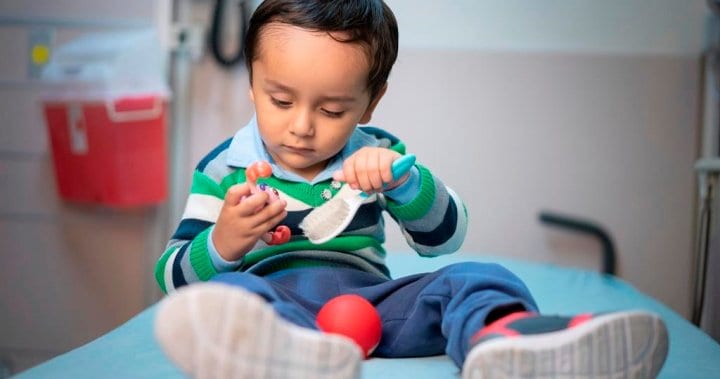Did You Know The Disabled AIDS Virus Could Be Used To Cure ‘Bubble Baby’s Disease?
Nikki Attkisson | Last Updated : May 13, 2021Doctors announced on Tuesday that a gene therapy that uses an unexpected ally, the AIDS virus, gave 48 babies and toddlers born without an immune system a functioning immune system.
According to the findings, all but two of the 50 children in a trial that received the experimental treatment now have good germ-fighting skills.
Did You Know The Disabled AIDS Virus Could Be Used To Cure ‘Bubble Baby’s Disease?
According to study leader Dr. Kohn of UCLA Mattel Children’s Hospital, they are taking what may have been a deadly illness and healing the majority of these children with a single operation. He said they’re practically free to go to school and do regular activities without fear of contracting a life-threatening infection.

The gene therapy, which did not help the remaining two children later, was given successful bone marrow transplants. Doctors stated it would take time to determine if any of the 50 is healed, but they seem to be doing better so far.
The children were suffering from severe combined immunodeficiency syndrome, or SCID, which is caused by a hereditary genetic flaw that prevents the bone marrow from producing stable copies of the blood cells that comprise the immune system. It also kills children in the first or second year of their life if not treated.
Bubble baby disease was named after a case in the 1970s involving a Texas boy who spent 12 years enclosed in a protective plastic bubble to keep germs at bay. It can be caused by about 20 different gene mutations, some of which affect both boys and girls.
A bone marrow transplant from a genetically related relative can reverse the condition, but most children are unable to find a compatible donor, and the procedure is dangerous. After the procedure, the Texas kid died.
Patients are now given antibiotics and germ-fighting antibodies twice a week, although this is not a long-term option.
Gene therapy, according to doctors, may be successful. They take some of the patient’s blood cells, use a damaged AIDS virus to implant a healthier variant of the gene that the children need, and then return the cells via IV.
Josselyn Kish, who is now 11 and residing in Las Vegas, was diagnosed with it when she was three years old at UCLA. According to her mother, Kim Carter, she was born with rashes, debilitating shingles, and constant diarrhea. Since her kid was still running a fever, daycare called her a couple of days a week to come to get her.
Josselyn improved immediately after the gene therapy, according to Carter. She now gets sick very occasionally and recovers well when she does. The optimism refers to Josselyn’s most recent infection, COVID-19, which she was recently diagnosed with and is causing only minor symptoms.
Twenty-seven children were treated at the L.A. hospital, three at the National Institutes of Health near Washington, and twenty at London’s Great Ormond Street Hospital. According to Dr. Stephen Gottschalk of St. Jude Children’s Research Hospital, Memphis. The fact that the procedure is effective across many hospitals administering it makes the analysis very strong.
He was not involved with the current research, but he and his collaborators had previously done a related gene therapy on 17 other children with SCID.
People wonder if this is a cure. Who knows how these children will do in the long run, but Gottschalk believes they will do better in the first three years. He believes that the immune system seems to be constant over time, which is quite promising.
The findings of the UCLA-led thesis were published in the New England Journal of Medicine on Tuesday and presented at an online meeting of the American Society of Gene & Cell Therapy. The dissertation was funded by grants from federal health services in the United States and the United Kingdom and the tax-supported California Institute for Regenerative Medicine. Kohn created the therapy and serves as an adviser to Orchard Therapeutics, a London-based firm that is currently researching it.
With over 15 years as a practicing journalist, Nikki Attkisson found herself at Powdersville Post now after working at several other publications. She is an award-winning journalist with an entrepreneurial spirit and worked as a journalist covering technology, innovation, environmental issues, politics, health etc. Nikki Attkisson has also worked on product development, content strategy, and editorial management for numerous media companies. She began her career at local news stations and worked as a reporter in national newspapers.
